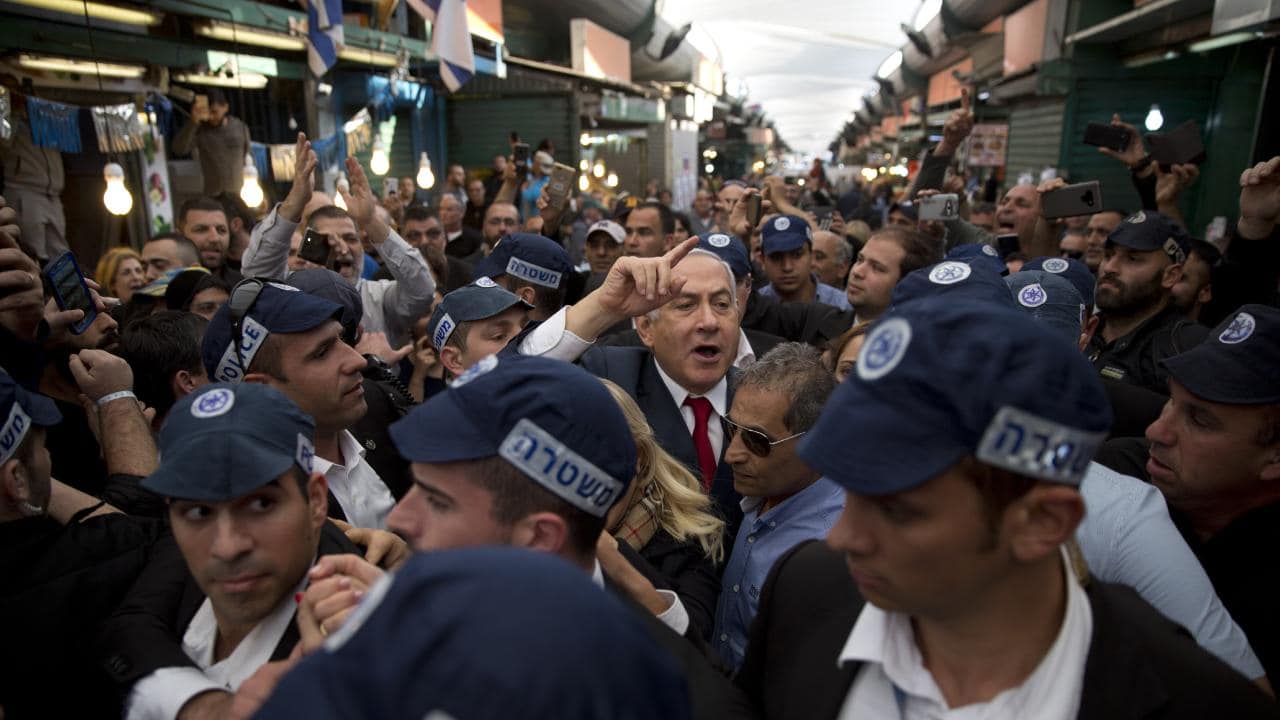Israel’s hotly contested elections come to a head on Tuesday, with about 5.8 million people eligible to vote for the 120-member parliament, the Knesset. It is expected to be a tight race with polls showing Prime Minister Benjamin Netanyahu best positioned to win what would be his fifth term in office. If he does get up he will in July become modern Israel’s longest-serving leader; in fact, his 13-year dominance of the country’s politics has been the biggest issue of the campaign.
Of the 6.3 million voters who are technically enrolled, about 500,000 are living abroad and unless they return to Israel for the election they cannot vote. Some Israeli Arabs who are eligible to vote may boycott the election and more than 4 million Palestinians who live in the occupied territories of the West Bank, East Jerusalem and the Gaza Strip under Israeli control are not eligible to vote because they are not Israeli citizens.
What are the polls showing?
That the right-wing bloc led by Netanyahu will win a majority in the single-chamber Knesset. But polls also show that a new centrist party, headed by popular former general Benny Gantz, is emerging as the largest single faction in parliament.
Netanyahu has waged a bruising campaign, painting Gantz as a weak leftist while wooing right-wing voters with a promise to annexe parts of the occupied West Bank. Surveys detect many undecided voters who could swing the election either way.
“You could argue it is a national referendum on Netanyahu,” says Jonathan Spyer, fellow at the Jerusalem Institute for Strategic Studies. “You see this in the main opposition party, Blue and White, that is a gathering of people, many of whom have nothing in common in terms of policy but what they have in common is they don’t want Netanyahu to be prime minister any more.”
Read the article by Maayan Lubell (Reuters, Bloomberg) in The Sydney Morning Herald.

